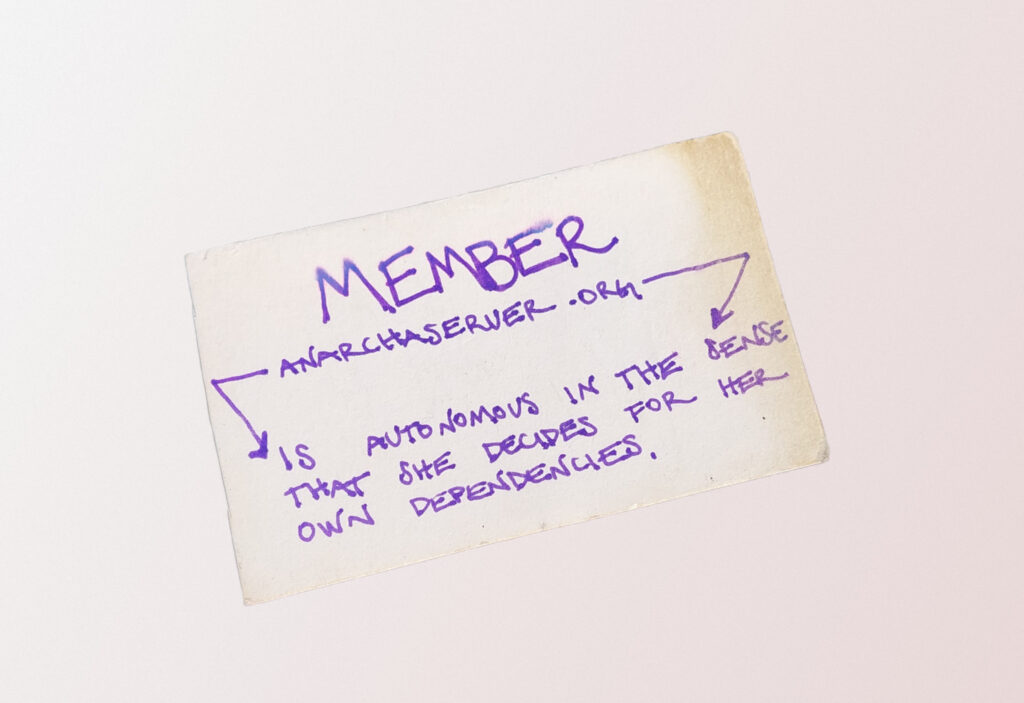In my text I discuss the user as a cultural form, and how it is shaped both by infrastructural organisation but also through narrative work. I do this through an analysis of the difficulties of users willing to migrate from Twitter to Mastodon, and through a second case study about Trans*Feminist Servers.

In this paper I discuss how user subject positions are invoked by digital infrastructures as an alternative to big technology platforms. With subject positions I mean a shared and often unarticulated understanding of what kind of technological practice is meant when we talk about users: user as a cultural form. I start with the analysis of a crisis in user subjectivity as it manifested in the migratory waves from Twitter to Mastodon at the end of 2022, after Elon Musk bought Twitter. Like Twitter, Mastodon is a microblogging service, but it operates as a network of connected servers run by nonprofit organizations and communities. I argue that Mastodon – by way of its infrastructural organization around servers and communities – invokes a different subject position of the user than the self-contained autonomous liberal subject, one that is based on a relationship with a community. In a second case study, I discuss how the artistic activist practices of TransFeminist Servers create a territory to rethink relations to technology itself, most prominently through raising questions of servitude: what does it mean to serve and to be served? I argue that through this, TransFeminist Servers are able to reformulate use as part of relations of care and maintenance and implement them in their technological practice. As I conclude, both Mastodon and Trans*Feminist Servers project a user exceeding the neoliberal subject. While Mastodon does so by proposing a subject position related to a community first, Trans*Feminist Servers go a step further and moreover open use as a practice beyond consumption, thus operate on relations to infrastructure itself.
Text as PDF available Open Access: https://aprja.net//article/view/140449
Full Issue: APRJA Vol. 12 No. 1 (2023): Minor Tech: https://aprja.net//issue/view/10332